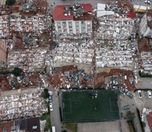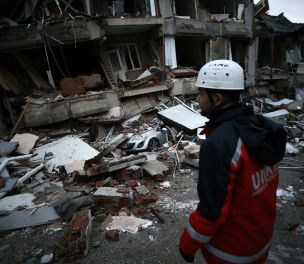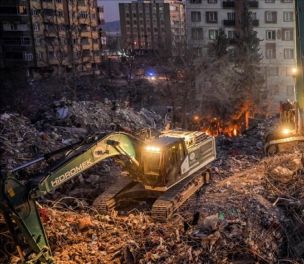Photo: AA
Click to read the article in Turkish
Primary health care services have still not yet been fully implemented in the regions affected by the powerful earthquakes on February 6, the Turkish Medical Association (TTB) said in a report.
"Family health care centers still do not provide services in Hatay. In Maraş and Adıyaman, primary care services are very limited," said the association.
"In the temporary shelter areas, infirmaries have been partially set up, but vaccination, heel blood screening and pregnant and baby monitoring are carried out in certain places and partially.
"Earthquake survivors who have not left their living spaces, most notably those in the villages, cannot get proper health care services. In our field visits in the region, under-vaccinated children, newly pregnant women and annoying risky pregnancies were detected and they were referred to [relevant institutions]."
Poor hygiene conditions
In the temporary shelter areas, which are cold and crowded, safe drinking water and toilet and hygiene facilities have not yet been fully provided, which poses a risk to public health, the association observed.
Another risk to public health is the dust emitted during wreckage removal and demolition efforts, according to the report. "Possible inhalation of asbestos brings the risk of lung cancer and asbestosis.
Diseases
The earthquake survivors in the region are in intense need for health care services as upper respiratory tract diseases, stomach diseases, scabies and urinary tract infections are seen frequently, the doctors further noted. Poor sheltering conditions and insufficient access to drinking water and sanitation exacerbate the problems.
Health Minister Fahrettin Koca said on February 19 that no disease outbreaks had been detected in the region. However, he had warned the people in the region not to drink tap water until further notice.
On February 6, two earthquakes with a magnitude of 7.7 and 7.6 struck the southern city of Maraş.
The quakes caused destruction in 10 cities in Türkiye's south and southeast, as well as Syria's northern parts.
The official death toll from the quakes stands at over 42,000 and is expected to increase further, as over 160,000 buildings were completely destroyed or severely damaged.
Over 400,000 earthquake survivors have been transferred to other cities while hundreds of thousands of others stay in tent cities set up in the quake-hit regions. (AS/VK)







